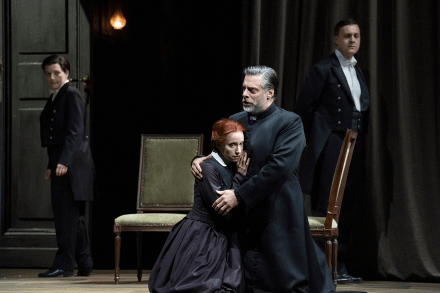Why are there so few decent French symphonies?
Grade: B Here’s a blind-listening game for you: spot the difference between proficiency and genius. Kazuki Yamada and his Monte-Carlo orchestra have recorded three first symphonies by three 19th-century French composers. With a few barnstorming exceptions (I’m looking at you, Berlioz), the French never really got the hang of the romantic symphony. Berlioz recounts with horror how Parisian editors picked through the scores of Beethoven’s symphonies, meticulously correcting Big Ludwig’s supposed errors. The kindest thing to say about the first symphonies of Gounod and Saint-Saëns is that they sound like Beethoven with the inspiration snipped out. Bright, polite and completely harmless, they’re both blown out of the water by the


